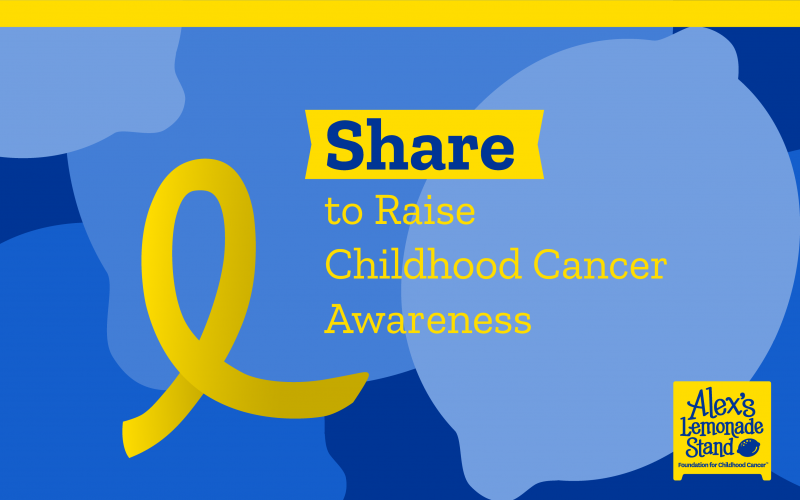
By: Trish Adkins
It is estimated that 400,000 children under the age of 20 are diagnosed with cancer each year.
However, there are most likely more cases of childhood cancer that go unreported. Not every country has a universal childhood cancer registry or a public health protocol for tracking cases. And in poorer countries, diagnosis and treatment delays not only limit the knowledge of cases, but limit long-term survival for these children.
In high-income countries, 80% of children diagnosed with cancer are cured and in some low and middle-income countries, only 20% of children survive.
There is work to be done to help these children, and together, we can do it by investing in collaborative research.
Childhood cancer researchers, funded by Alex’s Lemonade Stand Foundation (ALSF), work together on innovative, cutting-edge projects aimed at finding safer treatments and cures for all children facing cancer. Here’s how research works to find cures for all children:
Formally launched in 2018, the Crazy 8 Initiative is a global collaboration and funding mechanism for research teams working on innovative, rigorous and high-risk projects that address hard-to-treat childhood cancers. ALSF dedicated $25 million in grant funding for the Initiative, including the support of four projects at 15 institutions in the United States and Europe.
These researchers are collaborating to tackle the cancers considered “incurable." They are tackling problems in oncology research that have long been deemed too high-risk, including drugging MYCN, a known driver of pediatric cancer, studying the origins of sarcomas, barcoding leukemia for therapeutic purposes, and using molecular glue as a degrader for transcription factors that drive some of the deadliest forms of childhood cancer.
2. Cutting-Edge Clinical Trials
Through the Centers of Excellence (COE) program, ALSF has been able to support the development of clinical trials for novel therapeutic approaches to treating several types of childhood cancer. The COE program supports the training of physician scholars in drug development as well as the necessary infrastructure needed to launch and run clinical trials.
Last year, the four COE locations at Baylor University, the University of California San Francisco, Children’s Hospital of Philadelphia and the Dana Farber Cancer Institute initiated 51 new clinical trials and enrolled 336 children in trials. The four centers continue to work together to drive discovery and provide children access to targeted experimental treatment options when frontline therapy has failed.
Childhood cancer researchers have long struggled with collecting, sharing and utilizing the mass amounts of data publicly available — and that struggle can impede their progress and create hurdles in the pace of discovery. ALSF launched the Childhood Cancer Data Lab (CCDL) in 2017 as a way for scientists to access, share and collaborate on data while also continuing to move forward towards discoveries that help kids with cancer.
Data scientists at the CCDL created refine.bio — a collection of harmonized childhood cancer data that is uniformly processed and easily accessible. CCDL is also working on other initiatives, including the Open Pediatric Brain Tumor Atlas, which is a global open science initiative in collaboration with the Center for Data-Driven Discovery in Biomedicine at Children’s Hospital of Philadelphia. Scientists from around the world can contribute data and expertise to the Atlas, making collaboration possible.
4. Supporting Projects in Underserved Communities
ALSF funded researcher and founding member of the ALSF Scientific Advisory Board, Dr. David Poplack, is using his vast experience in childhood cancer research to improve pediatric cancer treatment in sub-Saharan Africa, a region of the world with a nearly 90% mortality rate for children diagnosed with cancer. Through his leadership of Global HOPE at Texas Children’s Cancer Center, Dr. Poplack has helped train more than 4,000 local health care professionals.
In 2020, ALSF honored Dr. Poplack with the Lifetime Achievement Award.
“We don’t want to grow ourselves as a field. We want to put ourselves out of business. That is what this is all about. And nothing would make me happier if tomorrow we didn’t see pediatric cancer anymore,” said Dr. Poplack
On International Childhood Cancer Awareness Day (and every day!) you can make a commitment to supporting research for all kids with cancer. Become a sustaining member of the One Cup at a Time Club! Sign up here.

